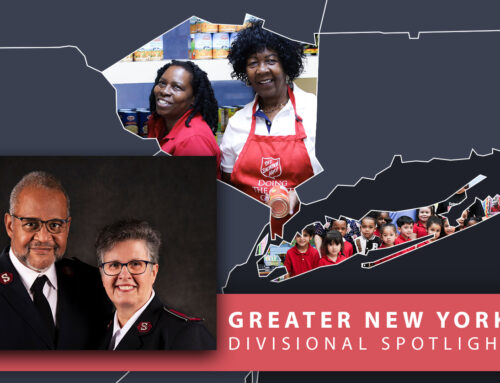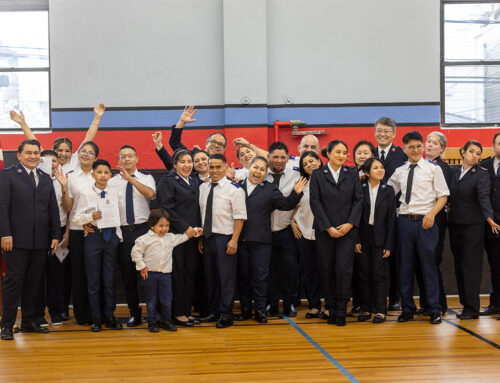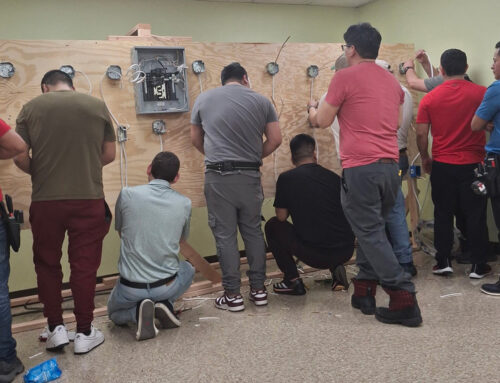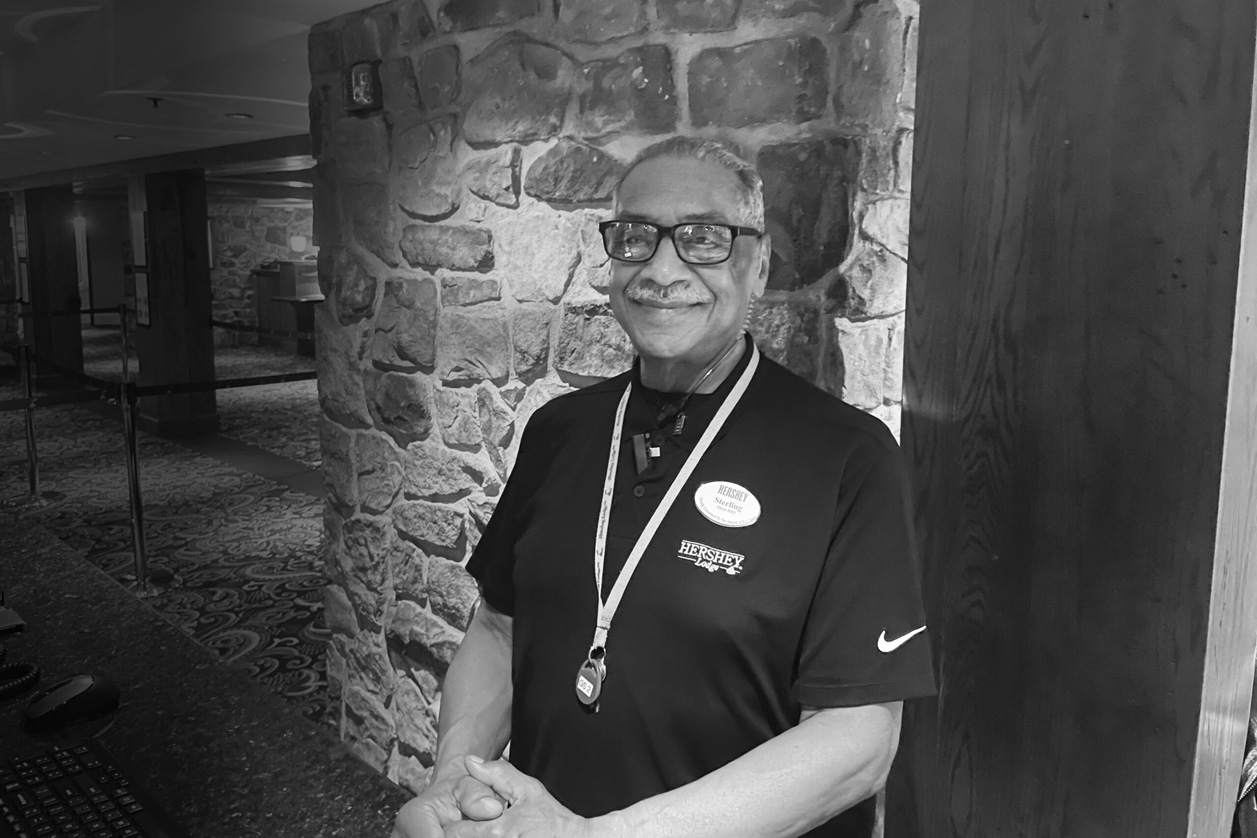
A second chance
by Warren L. Maye
Sterling C. Green Jr. is one of several concierges who graciously help guests find their way around the sprawling Hershey Lodge, part of Chocolatetown and Hersheypark in Hershey, Pa.
Traditionally and for many years, this has been the venue for memorable Salvation Army events. From spiritual retreats for men and women seeking renewal, to the annual ordination, commissioning, and appointment services for graduates of the College for Officer Training, the Hershey Lodge and Conference Center has become the Army’s home away from home for family and evange listic gatherings.
As Green engages parents and their enthusiastic kids, his genu ine smile belies memories of his own painful life as a child. But his friendly countenance also expresses a deep joy at seeing so many people from his beloved Salvation Army.
“When I was a kid, we were poor, on welfare, and didn’t know where our next meal would come from,” he says of those dark days. “But, every Christmas, our mother would take us to The Salvation Army. I’ll never forget it. They showed up every Christmas.”
The Salvation Army would give Sterling’s family a Christmas tree, groceries, and a turkey. Although his first encounter with the Army happened when he was just 8 or 9 years old during the early 1960s, he vividly remembers feeling grateful for the food, toys, and Christmas tree. Those visits served as a relief from the tension, frustration, and uncertainty that plagued their home. Indeed, The Salvation Army was their “Balm in Gilead,” as the song goes.
“I always had those fond memories of going to The Salvation Army and thinking how nice they were and how well they treated our family and all the poor families who came there.”
In those days, the Greens lived in Harrisburg, Pa., in the historic Uptown section. It was a poor area, and there were times when the family home lacked electricity or even running water. During the first part of the 19th century, that area of Harrisburg, the state capital, was an important stopping point along the Underground Railroad. People who were escaping slavery would cross the Susquehanna River to receive food and supplies before heading north toward Canada.
Seeking and finding help
Sterling, born in 1955, eventually had four brothers. As the oldest, he was frequently called upon by his mom to help be the caretaker of the family because their dad was in prison. “That’s why he couldn’t help us,” Sterling says. To gain assistance, Sterling’s mom went to the Opportunities Industrialization Center. Through that office, she furthered her education and secured a decent job.
“She worked as a teacher’s aide in the school district,” Green remembers. “Through the years, we progressed slowly, and things got better, you know, through the grace of God.”
The family occasionally attended a local church and would become members, although their attendance remained casual. “Like I said, when my dad went to jail, that threw a wrench into everything.” Nonetheless, Sterling gave his heart to Jesus at age 12.
In time, Sterling’s father was released from prison but divorced his mom, who ultimately remarried. “My stepfather was a good man. He helped raise us, supported our family, and got our lives back on track.” Green, who was also married but is now divorced, regrets repeating the mistakes of his family’s past. “You know, when my wife and I were together, I was messed up. I was an alcoholic and that ruined my family. I also killed my liver, and I ended up getting a transplant back in 2006.” That year, such transplants and the related statistics were at their highest on record.
“But you know, God blessed me,” says Green. “And He’s blessed me with good health ever since. Once I got straightened out, God gave me another chance at life.”
In 2009, Green’s mom passed. Today, he has three brothers who are still alive. They have families of their own, and two of them still live in Harrisburg. Green eventually moved to Hershey after taking a job at the chocolate factory.
“I was traveling back and forth. Coming down the road every day and sometimes in bad weather made me say, ‘I’m going to just move down here. It’s a nice area you know.’ I’ve been down here 23 years now.”
Acceptance and forgiveness
Today, Green’s ex–wife lives in Georgia, and by faith, they’ve sought to reconcile their differences. “We are best friends now. I’m planning a trip to go down in October,” he says. Their only son also lives in Georgia with his wife, three boys, and one daughter. Sterling’s relationship with his son and daughter–in–law, whose parenting philosophies frequently stand in contrast to his own, has been a challenging one. But over time, they have learned to love, forgive, and appreciate each other’s differences.
They’ve discussed, debated, and argued over contrasting perspectives on the meaning of life and their beliefs. Nonetheless, Green remains thankful to God for giving him a second chance at life and the pursuit of happiness.
Today, Green serves as a deacon at the Martin Luther King Baptist Church in Harrisburg, which was founded by members of Green’s family. “By the grace of God, He healed me,” Sterling says. “I asked Him, ‘Why?’ He answered, ‘Because I want you to be a living witness of what miracles I can do.’” Green says he carries another person’s DNA as result of the transplant, “But it is the blood of Jesus that has truly saved me.”
For Green, the children who grace the lobby at Hershey Lodge during Salvation Army events vividly remind him of his own grandchildren. Scrolling through their photos on his phone, Green says, “I just love my grandkids. You know, they love me too, and it’s awesome. That’s the best thing to have—my family.”
An artist at heart
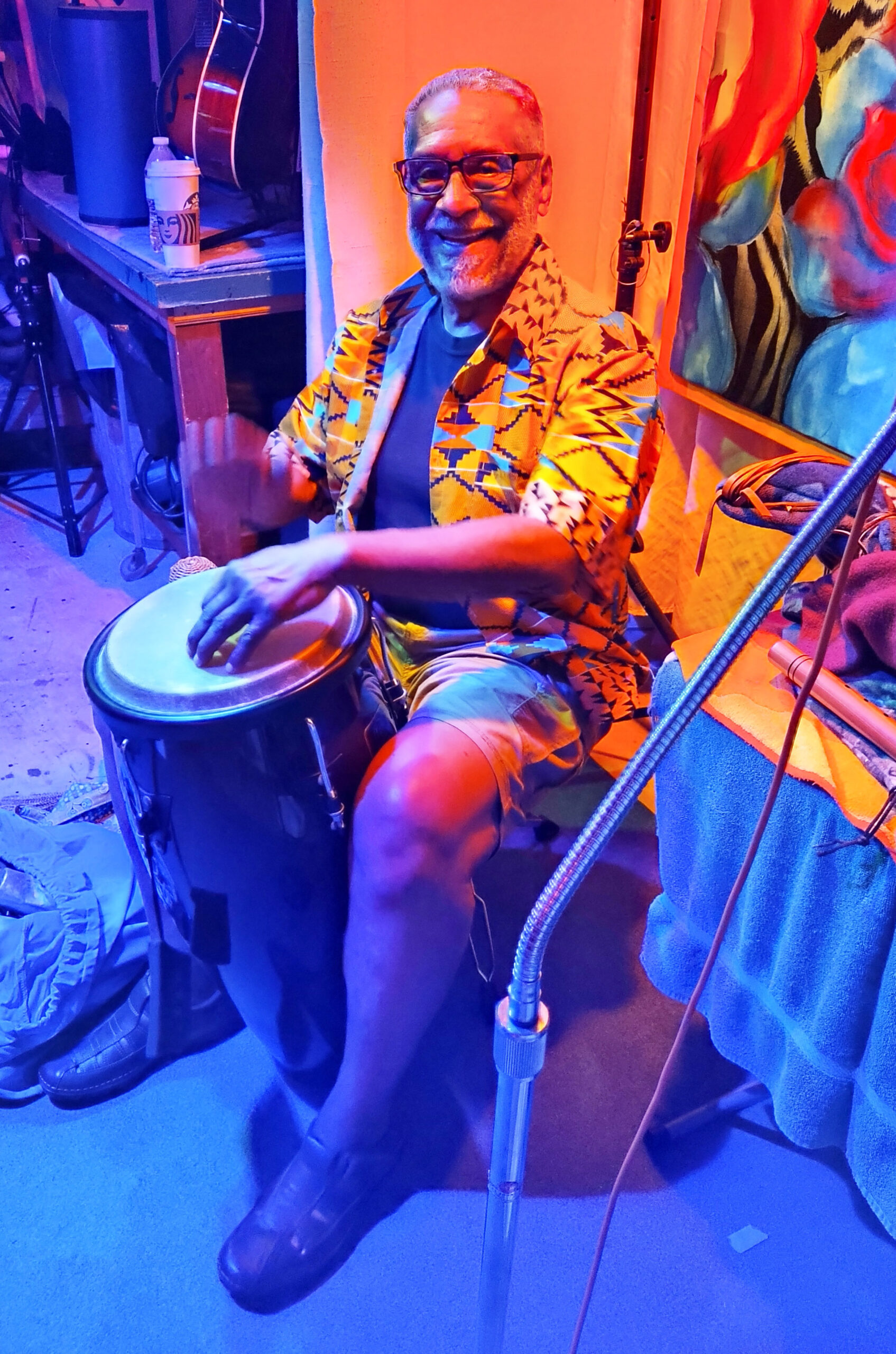
Courtesy of Sterling C. Green Jr.
For the past 50 years, Green, a versatile instrumentalist, has blended his rich African American and Indigenous history into music that captures the imagination of audiences. “I’m a percussionist. I play Latin percussion and Australian didgeridoo [a lip–vibrating wind instrument] and drumming, and Native American–styled flute. I’ve performed here at the lodge.”
The Hershey Medical Center hired him to play for a lodge dinner event in the Cocoa Inn Room. “They heard me play before the dinner started, for 45 minutes. I was playing in the Native American style. That’s what I do, you know, to draw an overflow crowd.”
His signature sound emanates from a deep place in Green’s soul. His great–grandmother of Choctaw heritage was also a slave. “She came from Alabama in a wagon train and worked on a plantation in Virginia,” he says. “Once she got free, she raised her own family. She had seven children, and one of her sons is my grandmother’s father.”
Green has performed at many music festivals and cultural events and at gatherings of the Pennsylvania Native American Flute Circle. One of his many admirers wrote, “Love this music and I love this man! Be forewarned. He’s a real magic man, a healer, and I’m proud to be his friend!”
Read more from the latest issue of saconnects.

